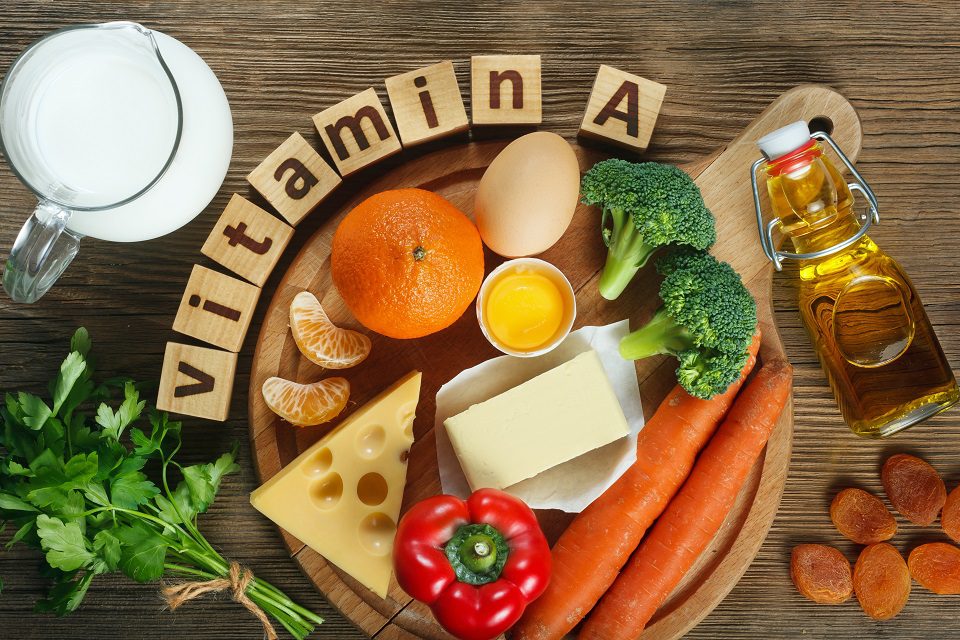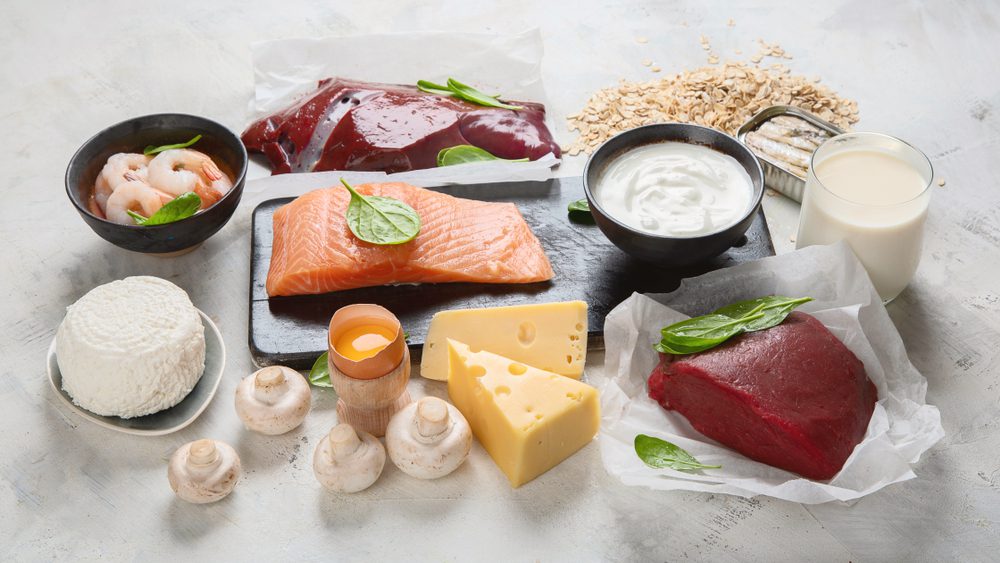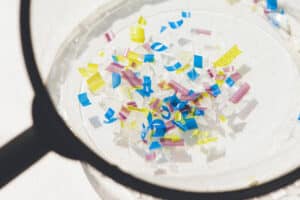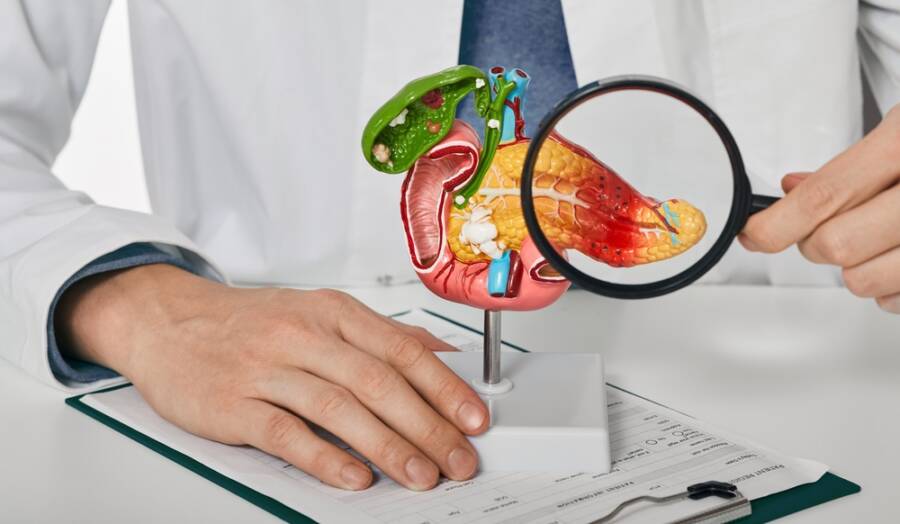Do you know what the nine essential vitamins are for your body?
We all know (I guess) that vitamins and minerals play crucial roles in many body functions. And while we are all aware of their importance, we often don’t get enough of them. Why is that so? You can get your much-needed vitamins from your diet. It’s the easiest and the healthiest way.
Still, most Americans have a vitamin deficiency. So, according to your taste buds, burgers and pizza might be the best of the best, but the other parts of your body strongly disagree. And although you can also get them from supplements, it’s better to go natural.
Dietary supplements are often advertised as healthy, and we don’t want to suggest anything, but if you can, get your key vitamins directly from the source. Daily consumption of both fruits and veggies is required to achieve your recommended daily intake target for vitamins. Try getting these crucial vitamins from food first. If you still have a vitamin deficiency, consult your doctor. Therefore, let’s discover the nine key vitamins your body needs to function at full capacity.

Vitamin A
From a nutrition point of view, vitamin A is not exactly a single vitamin, but more like an entire family of several vitamins, called by most nutritionists and doctors, retinoids. You’ve also heard of them because they are all part of the retinoids family.
And since we’ve finished introducing them, now we should know their importance for our bodies. First of all, vitamin A is crucial for maintaining our immune and reproductive systems in tip-top shape. Secondly, it has the main role in keeping our heart, lungs, and kidneys healthy.
Vitamin A does so much more… It’s essential for tooth and bone development, too. Ahh, and your eyes can’t do their job without this key vitamin. Sadly, almost 50 percent of Americans are vitamin A deficient. The number is outrageous, considering how many vitamin A sources are found in all farms, supermarkets, and grocery stores. Yet, that’s the sad truth.
People with vitamin A deficiency should understand that they have an increased risk of developing several health conditions like urinary tract infections, prostate disease, pneumonia, and even cancer. Vitamin A deficiency could also lead to blindness.
Still, make sure you don’t fall in the second category because there is such thing as too much vitamin A. How so? It’s quite simple… Your body stores vitamin A in fat, and excess accumulation of this vitamin could lead to numerous health problems like nausea, headaches, fatigue, double vision, vertigo, and vomiting.
Way too much vitamin A can also cause bone fractures, osteoporosis, and liver toxicity. That’s why you shouldn’t get more than the recommended daily intake ( 900 micrograms for adult men and 700 mcg for adult women).
Foods High in Vitamin A
- Beef liver (1 slice: 6,421 mcg)
- Lamb liver (1 ounce: 2,122 mcg)
- Liver sausage (1 slice: 1,495 mcg)
- Cod liver oil (1 teaspoon: 1,350 mcg)
- King mackerel (half a fillet: 388 mcg)
- Salmon (half a fillet: 229 mcg)
- Goat cheese (1 slice: 115 mcg)
- Sweet potatoes (1 cup: 1,836 mcg)
- Kale (1 cup: 885 mcg)
- Collards (1 cup: 722 mcg)
- Carrot (1 medium carrot: 392 mcg)
- Mango (1 medium mango: 181 mcg)
- Cantaloupe (1 large wedge: 172 mcg)
There are a plethora of foods high in vitamin A. Find your favorite ones and consume them regularly! And make sure to keep your daily intake in a healthy range!
Vitamin C
Also known by many as ascorbic acid, vitamin C is also one of the most important vitamins your body needs to function properly. There’s no surprise that its main role is to keep our immune systems in the best possible shape to fight different enemies.
Vitamin C is essential in the growth of tissue and maintaining our skin, bones, and teeth healthy. You can add to the list cell protection from free radicals, radiation, and toxins, too. This key vitamin does many things for us, but like most vitamins and minerals, we don’t get enough of it.
And yes, vitamin C deficiency is actually pretty uncommon in developed countries like ours, but it can still occur in individuals who have limited food variety. So, it’s also about what you choose to put in your mouth every day.
Vitamin C deficiency can result in a severe condition called scurvy. Scurvy’s symptoms are gum swelling, corkscrew hairs, poor wound healing, and tiredness. However, this condition is really rare in our country, as your body needs only a small amount of this vitamin to prevent it.
Now maybe you’re wondering if you can “overdose” on vitamin C. Short and concise: YES, you can. Unlike vitamin A, vitamin C is not stored in your body, meaning that the excess will be eliminated through urine. A large intake of vitamin C has serious side effects like diarrhea, nausea, stomach cramps, and it can even lead to kidney stones.
That’s why people with poor kidney function should avoid high doses of vitamin C. If you’re a man, the recommended daily amount for you is 90 milligrams and, if you’re a woman, the amount is 75 milligrams.
Foods High in Vitamin C
- Kakadu plums (1 medium plum: 481 mg)
- Acerola cherries (one-half cup: 822 mg)
- Rose hips (6 rose hips: 119 mg)
- Chili peppers (one red chili pepper: 65 mg)
- Guavas (1 medium guava: 126 mg)
- Sweet yellow peppers (one-half cup: 75 grams)
- Blackcurrants (one-half cup: 56 grams)
- Thyme (one ounce: 28 grams)
- Parsley (2 tablespoons: 10 mg)
- Raw kale (one cup: 80 mg)
- Broccoli (one-half cup: 51 mg)
- Lemons (1 lemon: 83 mg)
- Strawberries (one cup: 89 mg)
Vitamin D
A recent study of 489 individuals found that those who had low levels of vitamin D or even a vitamin D deficiency were actually more likely to test positive for the virus that is known to cause COVID-19 than those who had normal levels of this vitamin.
Researchers explained that vitamin D supports our immune systems, and maybe that’s why people with good levels of this essential vitamin are less likely to get the virus. COVID-19 or not, one thing is certain: we all need vitamin D.
So, do you think you’re getting enough? Almost 42 percent of the U.S. population is vitamin D deficient. With this concerning number on the plate, you might be vitamin D deficient without knowing it. If you’ve been feeling sad lately for apparently no reason, maybe a vitamin D deficiency is going on.
Muscle weakness is also a pretty common symptom of a vitamin D deficiency. Unfortunately, the coronavirus pandemic has forced most of us to remain indoors, leading to an even greater number of people with vitamin D deficiency. And yes, sunlight exposure is the best way to recharge your vitamin D batteries, but there’s also food and supplements.
However, talk to your doctor before making any decisions. Too much vitamin D can lead to hypercalcemia which is basically the formation of large amounts of calcium in the body. Taking way too many vitamin D supplements can also result in nausea, confusion, headaches, vomiting, loss of appetite, weakness, and increased urination.
In severe cases, it can cause kidney stones, irregular heartbeat, and even kidney failure. So how much is too much? The recommended daily allowance of this vitamin is 600 international units (IU) for most adults.
Foods High in Vitamin D
- Salmon (3 ounces: 425 IU)
- Mackerel (3 ounces: 547 IU)
- Beef liver (3 ounces: 42 IU)
- Egg yolks (1 egg: 41 IU)
- Tuna (3 ounces: 154 IU)
- Sardines (3 ounces: 270 IU)
- Shiitake mushrooms (1 cup: 40 IU)
- Milk (8 ounces: 100 IU)
- Yogurt (6 ounces: 80–100 IU)
- Almond milk (8 ounces: 100 IU)
- Orange juice (1 cup: 137 IU)
- Fortified tofu (3 ounces: 80 IU)
Make sure the foods mentioned above are part of your diet!
Vitamin E
Your doctor or nutritionist knows it as alpha-tocopheral, too. It’s just another name from the key vitamin E. And do you know what makes it a key vitamin? Its role in a plethora of body functions. From supporting blood vessels’ health and preventing clots from developing to maintaining a good immune system and destroying free radicals, we can’t live without vitamin E.
When we deprive our body of vitamin E-rich sources, we could experience muscle or nerve damage and muscle weakness. In more severe cases, a vitamin E deficiency can weaken our immune system, leading to a type of anemia doctors call hemolytic anemia.
Cystic fibrosis and Crohn’s disease patients could also be vitamin E deficient. Still, they shouldn’t get vitamin E supplements in large amounts. Overdosing on vitamin E can cause intestinal cramps, nausea, headaches, diarrhea, extreme fatigue, and weakness.
Way too much vitamin E can cause excessive bleeding, which could result in stroke or even death. The recommended daily intake for adults is 15 milligrams of vitamin E per day (22.5 IU).
Foods High in Vitamin E
- Sunflower seeds (1 ounce: 10 mg)
- Almonds (1 ounce: 7.3 mg)
- Hazelnut oil (1 tablespoon: 6.4 mg)
- Abalone (3 ounces: 3.4 mg)
- Pine nuts (1 ounce: 2.7 mg)
- Goose meat (1 cup: 2.4 mg)
- Avocado (half a fruit: 2.1 mg)
- Mango (half a fruit: 1.5 mg)
- Turnip greens (1 cup: 1.6 mg)
- Kiwifruit (1 medium fruit: 1.0 mg)
- Salmon (half a fillet: 2.0 mg)
- Mamey sapote (half a fruit: 5.9 mg)
- Mustard greens (half a cup: 1.3 mg)
Vitamin E is found in almost all foods. For this reason, it is kind of difficult to have a vitamin E deficiency.
Vitamin K
So, what body function does vitamin K serve? The “K” comes from the German word “koagulation,” and it was named this way because vitamin K helps your blood coagulate or properly clot, guarding you against blood loss when severely injured.
However, vitamin K does so much more for you. For example, vitamin K is also responsible for keeping your bones strong and healthy. Researchers suggest that vitamin K plays an important role in kidney health, too. So what really happens to our bodies when we don’t get enough of this vitamin?
People who don’t get enough vitamin K experience a prolonged healing process. Their bone health is also at risk, as a vitamin K deficiency could lead to osteoporosis. Luckily, vitamin K deficiency is pretty rare. Most foods contain decent amounts of this vitamin. Plus, the bacteria found in your gut also create vitamin K.
Doctors say that people with liver disease, cystic fibrosis, or ulcerative colitis are more likely to develop a vitamin K deficiency. If you’re at risk, talk to your doctor.
Taking vitamin K supplements without consulting your doctor is not recommended as some medications like warfarin interfere with them. Still, you can’t really overdose on vitamin K supplements. And let’s say you do… according to studies, large amounts do not lead to any side effects. It’s best to get no more than 80 mg of vitamin K per day if you’re a man and 65 mg if you’re a woman.
Foods High in Vitamin K
- Kale (half a cup: 531 mcg)
- Swiss chard (1 leaf: 398 mcg)
- Collard greens (half a cup: 386 mcg)
- Spinach (1 cup: 145 mcg)
- Beef liver (1 slice: 72 mcg)
- Pork chops (3 ounces: 59 mcg)
- Chicken (3 ounces: 51 mcg)
- Green beans (half a cup: 30 mcg)
- Prunes (5 pieces: 28 mcg)
- Kiwi (1 fruit: 28 mcg)
- Soybean oil (1 tablespoon: 25 mcg)
- Hard cheeses (1 ounce: 25 mcg)
- Green peas (half a cup: 21 mcg)
Because vitamin K is pretty easy to get from food, you don’t have to worry about having a vitamin K deficiency unless you have liver issues.
Vitamin B2
Vitamin B2, a.k.a. riboflavin has many tasks and chores. From releasing energy from the foods we indulge in, to maintaining healthy skin, hair, eyesight, and nails by promoting cell growth, riboflavin even supports the tasks of its little brothers (B3 and B6).
People with vitamin B2 deficiency might experience sores at one corner of the mouth, cracked and swollen lips. Left untreated, a vitamin B2 deficiency can lead to anemia and even cataracts. Those who drink way too much alcohol can also have a vitamin B2 deficiency.
Doctors say that a vitamin B2 overdose doesn’t cause serious side effects. Taking vitamin B2 supplements can result in yellow-orange urine, but that’s all and it’s not harmful at all. The daily requirement of riboflavin is 1.3 milligrams for men and 1.1 milligrams for women.
Foods High in Vitamin B2
- Beef (6 ounces: 1.5 mg)
- Fortified tofu (1 cup: 1 mg)
- Low-fat milk (16 ounces: 0.9 mg)
- Salmon (6 ounces: 0.8 mg)
- Mushrooms (1 cup: 0.5 mg)
- Lean pork chops (6 ounces: 0.5 mg)
- Spinach (1 cup: 0.4 mg)
- Almonds (1 ounce: 0.3 mg)
- Avocado (1 fruit: 0.3 mg)
- Eggs (1 large egg: 0.3 mg)
Don’t worry! You’re probably getting enough vitamin B2 from your diet.
Vitamin B3
Have you ever heard of niacin? Yes? Well, it is basically vitamin B3. Like his big brother (riboflavin), niacin assists in offering energy to our bodies and cells, too. On top of that, niacin makes sure your skin, nerves and gut are in tip-top shape.
Sadly, a vitamin B3 deficiency can result in a pretty rare condition known as pellagra. This condition starts as a bad rash to sun-exposed areas with vomiting, diarrhea, and nausea. However, in advanced stages, pellagra can lead to dementia and even death.
In general, pellagra occurs in individuals who have anorexia or AIDS. If you want to take niacin supplements, call your doctor as a niacin overdose can cause nausea, diarrhea, and vomiting. In some cases, people who take way too many niacin supplements can experience itching and a feeling of warmth and tingling on the neck, chest, face, and ears. The maximum daily intake of niacin for adults of all genders and ages is 35 milligrams daily. So do you think you’re getting enough? First… Let’s see if you eat the right foods.
Foods High in Vitamin B3
- Liver (3 ounces: 14.7 mg)
- Chicken breast (3 ounces: 11.4 mg)
- Tuna (5.8 ounces: 21.9 mg)
- Turkey (3 ounces: 6.3 mg)
- Pork (3 ounces: 6.3 mg)
- Ground beef (3 ounces: 6.2 mg)
- Peanut butter (2 tablespoons: 4.3 mg)
- Avocado (1 fruit: 3.5 mg)
- Mushrooms (1 cup: 2.5 mg)
- Green peas (1 cup: 3 mg)
- Potatoes (1 large potato: 4.2 mg)
Well, what’s your answer?
Vitamin B9
Vitamin B9, folate, and folic acid are different names for the same thing. Most people and doctors, too, prefer referring to vitamin B9 with “folate.” So what makes folate so special when compared to other vitamins? Body cells need folate to divide and grow. No folate, no cell growth.
Besides, folate is also responsible for creating nucleic acids, the building blocks of our DNA. Folate is recommended to all pregnant women for the healthy development of their babies. Therefore, a folate deficiency can maximize the risk of brain and spinal cord defects in the fetus.
Those who tend to drink a lot could experience GI problems like diarrhea, which often signals a folate deficiency. Anti-seizure medications could lead to a folate deficiency, too.
You can take folate supplements to rich your daily intake. However, it’s not a good idea to overuse. Taking way too many folic acid supplements can lead to nerve damage, impaired coordination, and even changes in behavior. Try to get no more than 400 micrograms of folate per day.
Foods High in Vitamin B9
- Kidney beans (1 cup: 131 mcg)
- Asparagus (a half-cup: 134 mcg)
- Eggs (one large egg: 22 mcg)
- Leafy greens (1 cup: 58.2 mcg)
- Beets (1 cup: 148 mcg)
- Oranges (1 orange: 55 mcg)
- Brussels sprouts (a half-cup: 47 mcg)
- Broccoli (1 cup: 57 mcg)
- Walnuts (1 ounce: 28 mcg)
- Beef liver (3 ounces: 212 mcg)
- Papaya (1 cup: 53 mcg)
- Bananas (1 fruit: 23.6 mcg)
- Fortified grains (1 cup: 102 mcg)
Try to incorporate plenty of vitamin B9-rich sources into your diet!

Vitamin B12
Doctors also refer to it as cobalamin, but vitamin B12 is known more under the latter name. Without vitamin B12, our nervous systems won’t be able to develop and grow properly. Apart from that, vitamin B12 is also responsible for the development of proteins, lipids, RNA, and DNA.
Red blood cell formation is possible due to vitamin B12. So, what could happen to people who don’t get enough of this crucial vitamin?
First of all, having a vitamin B12 deficiency often translates to anemia. In severe cases, it can lead to a damaged nervous system. People with a B12 deficiency could experience numbness and tingling in both feet and hands. Some patients reported confusion as a symptom, too.
Vegetarians are more prone to having a vitamin B12 deficiency since the best vitamin B12-rich foods come from animal sources. However, certain medications could also be the culprits of a vitamin B12 deficiency. And yes, you can overdose on vitamin B12 supplements… Way too many can cause diarrhea, nausea, vomiting, and headaches.
For healthy adults, the recommended daily intake of this vitamin is 2.4 micrograms. Older adults might need to take more. No matter in which category you find yourself, talk to your doctor before taking any supplements.
Foods High in Vitamin B12
- Lamb liver (3 ounces: 70.7 mcg)
- Shellfish (3 ounces: 84.1 mcg)
- Trout (3 ounces: 5.4 mcg)
- Salmon (3 ounces: 4.8 mcg)
- Low-fat milk (1 cup: 1.2 mcg)
- Eggs (1 large egg: 0.6 mcg)
You may also want to read this amazing article: 11 Least Unhealthy Junk Foods.














One Response